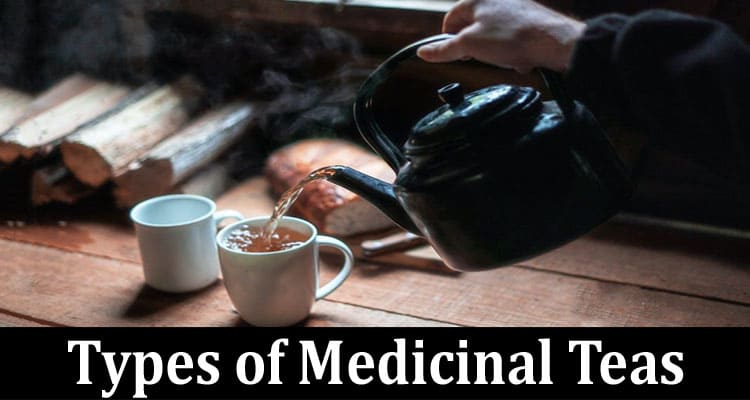Tea is a tasty beverage that can be consumed either hot or cold. Its advantages extend beyond mere refreshments and can be a popular alternative for people looking to enhance their health.
The health benefits of tea are extensive, with various varieties of tea having varied medical benefits. This piece aims to unpack how different kinds of teas can have medicinal benefits. Here are some seven options of teas to try that can boost your health.
1. Kratom Tea
Kratom tea has lately gained popularity due to its immediate stimulating benefits. The advantages of kratom tea are becoming more popular among celebrities and many locals, and its stimulating effects are being studied. The tea includes alkaloids and is produced from kratom leaves. These chemicals are considered to have analgesic, relaxing, and antidepressant properties.
Red Bali, Green Malay, Borneo, Malaysian, Indo, Malaysian, Thai, and Maeng da are the seven regarded strains or kinds of Kratom. Each Kratom tea variant has a unique set of benefits. All may contain antipsychotic, antianxiety, and antidepressant characteristics. Therefore, consuming Kratom tea may boost your mood and help relieve anxiety and depression.
However, frequent usage of Kratom may also result in dependency and withdrawal symptoms. So, take the product in proper proportions.
2. Chamomile Tea
Chamomile is a plant with several benefits. Due to its pleasant smell, aromatherapists worldwide use chamomile oil to potentially relieve depression and anxiety. Similarly, chamomile herbal tea is well-known for its soothing effects and is frequently recommended to those with trouble sleeping. This is due to apigenin, an antioxidant component in chamomile that binds to receptors in the brain, lowering anxiety and inducing calmness, which leads to sleepiness.
3. Peppermint Tea
Peppermint tea is a popular tea all around the world. Menthol, the primary component of peppermint, provides a cooling effect. The next time you experience a fever, peppermint herbal tea will lead you to sweat, while menthol will help cool your body. It is also beneficial for the stomach. It helps relieve the symptoms of irritable bowel syndrome owing to its anti-inflammatory characteristics. If you have digestive troubles such as cramping, indigestion, or nausea, peppermint tea is an excellent natural remedy.
4. Ginger Tea
Ginger has been a natural remedy for various health problems for centuries. It’s well-known for its digestive benefits, anti-inflammatory characteristics, and ability to alleviate nausea and motion sickness.
Ginger’s ability to alleviate nausea is one of its most significant health benefits. Ginger tea has been proven to mitigate nausea efficiently, making it a popular remedy for morning sickness in a pregnant woman.
Ginger also has Zingibain, a substance that protects the body against inflammation. This component inhibits the production of prostaglandins, which are inflammatory compounds that can cause pain and suffering. Since these compounds compress the uterus and cause pain, women can drink ginger tea to relieve menstruation discomfort.
In addition, ginger has been discovered to provide digestive advantages by assisting the body in moving food from the stomach to the rest of the digestive system. By accelerating this process, ginger can help to alleviate indigestion and stomach discomfort.
5. Hibiscus Tea
Hibiscus tea bags, made by steeping hibiscus flower buds, has a tangy or sour flavor. It was famously used in Chinese and ancient Egyptian cultures. Hibiscus tea can significantly reduce diastolic and systolic blood pressure by facilitating uninterrupted blood flow throughout the body. In addition, regularly drinking hibiscus tea lowers the likelihood of oxidative stress, which is the root cause of several chronic illnesses.
However, it is essential to note that pregnant women should avoid consuming hibiscus tea. Also, when taken in excessive quantities, this plant can cause allergic responses in some individuals and intoxication or hallucinations in others.
6. Rooibos Tea
Rooibos, or red bush tea, is a South African herbal tea produced from the leaves of the red bush plant. It is caffeine-free and has a nutty flavor. The tea has been linked to various health advantages, including cancer prevention, enhanced bone health, anti-aging characteristics, increased immune systems, relief from stomach pains, and suppression of sugar cravings.
When combined with green and black tea, rooibos tea has been shown to improve bone health by stimulating the cells involved in bone growth and density. As a result, it is beneficial for older persons or individuals with weakening bones and regular joint discomfort, as it can ease these symptoms. Additionally, rooibos tea reduces inflammation and cell damage.
7. Green Tea
Green tea is prepared from the leaves of the Camellia sinensis plant, native to Asian nations such as India, China, and Japan. Although this plant is also used to make black tea, the different ways the leaves are processed result in products with distinct qualities and advantages. Green tea is believed to be helpful for the immune system because it includes a high concentration of catechins, a flavonoid with antiviral, antibacterial, and antioxidant effects. Antioxidants are a vital defense mechanism against infections such as the common cold and the flu.
Wrapping Up
Several tea varieties have a history of health applications, so your warm cup may also give medical advantages. Nevertheless, because there is no factual data to back up many assertions, relying only on tea to prevent, treat, or manage sickness is not prudent. Always seek medical advice whenever you have health challenges, and use the teas mentioned above simply as supplements.


